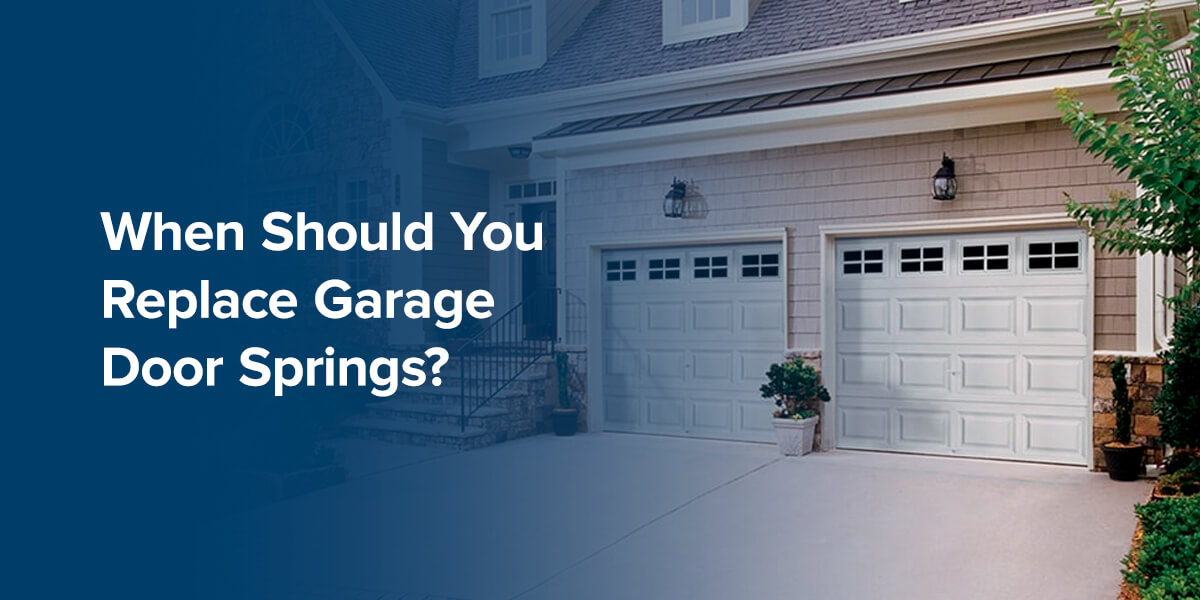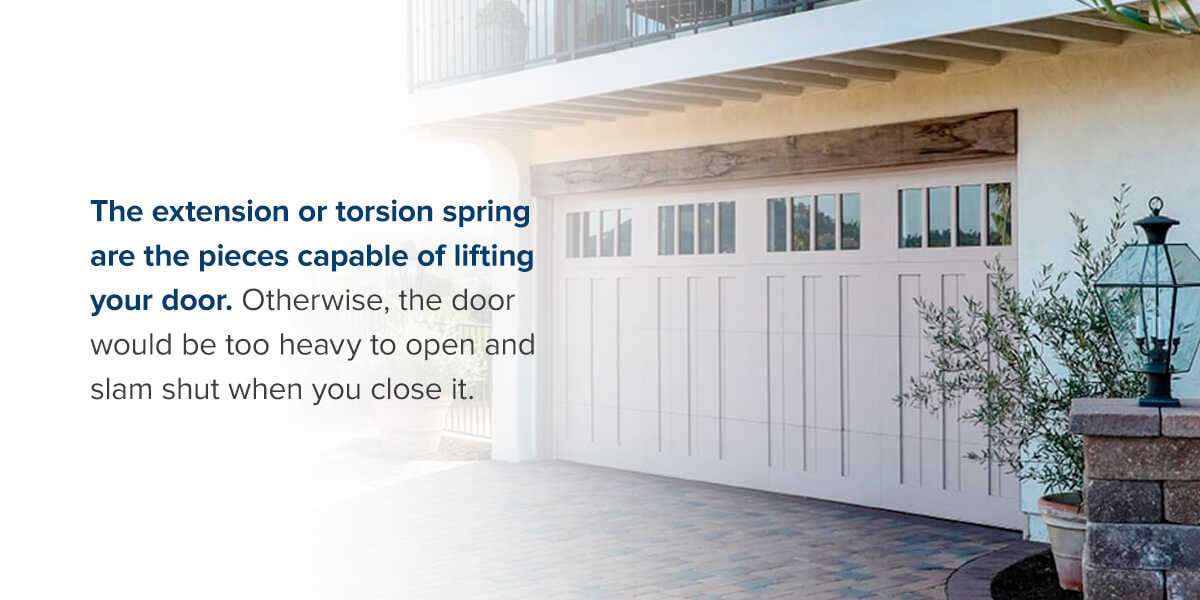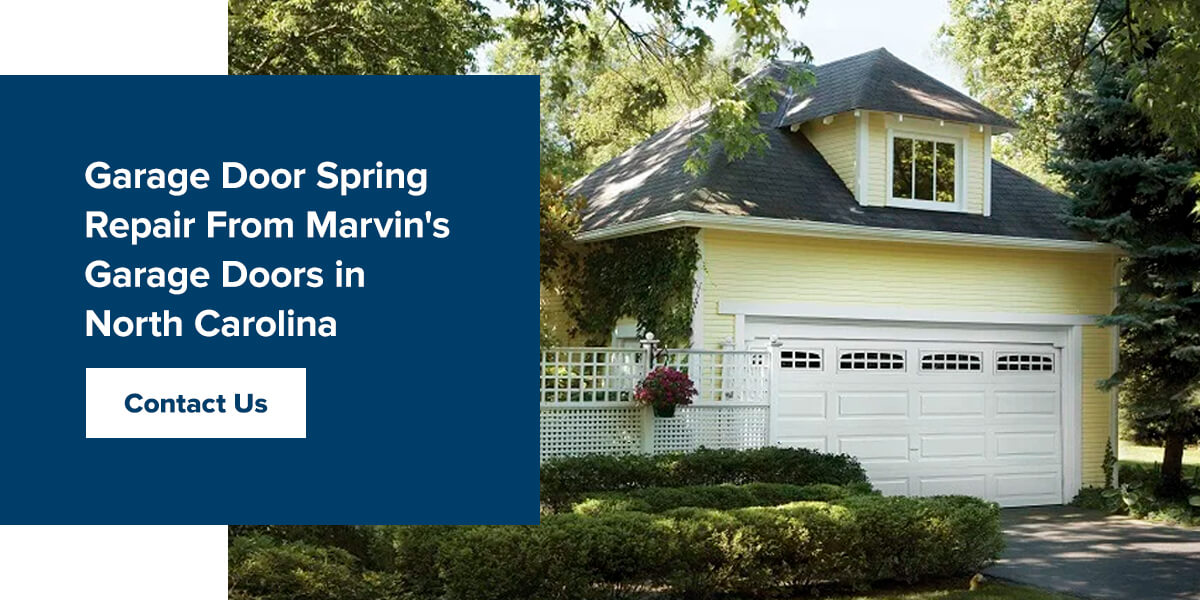

Your garage door springs are durable pieces essential for your door to function correctly. When you regularly maintain them, they can last for many years. However, with any moving parts, you will experience some wear and tear, and you will eventually need to replace your springs.
Keeping your moving pieces clean and well-lubricated will help your springs function properly and last for a longer time, but they’re not indestructible. The more you use your door, the sooner you will experience signs of wear in your springs.
Your garage door springs work by either expanding or turning to open your door. Some are connected to a pulley system that raises and lowers your door through the connected cables. Others are attached to metal tubes that connect to the cable drums to open and close your door when they turn.
The springs on your garage control the opening and closing of the door. Garage doors either have extension springs or torsion springs. Extension springs require more parts to install, and you can find them more in older homes. Torsion springs are much more common and are taking over residential doors because they allow for more controlled movement.
The extension springs in your door store energy by stretching or extending. Typically, there are two extension springs for every garage door, and you can find them on either side of the door, running parallel to the horizontal track. Because extension springs require more parts for installation, you have to give those extra pieces attention as well. You’ll need to evaluate the condition of your sheaves — the grooved wheels — and ensure there are no tears or other forms of damage to your cables.
Extension springs can be further identified as:
Torsion springs are always above your garage door. These springs are right above the opening, and you can find them on the torsion bar. Instead of expanding, they turn to open your door and distribute the door’s weight evenly to reduce shaking as it opens. They hold tension when they’re wound up and release tension as your door rises. Depending on how heavy the door is and how many entries you have, you can find between one and four tension springs in your garage.
Torsion springs can be classified as:
Torsion springs are safer to use than extension springs, and you’ll find that you can maintain your garage door much easier. While extension springs are out in the open, torsion springs are enclosed in a tube and don’t store as much energy, allowing for more use and less opportunity for damage.

The extension or torsion spring are the pieces capable of lifting your door. Otherwise, the door would be too heavy to open and slam shut when you close it. If your springs are broken or damaged, you won’t be able to open your door. You should not attempt to open your door if your springs have broken because you could further damage your system.
Garage safety is imperative to ensure you protect people, vehicles and other objects from injury or damage during operation. Broken springs are dangerous and can cause serious injuries. If your extension springs have broken, avoid using your door or entering your garage. When these springs snap, they can cause pieces to fly through the air and injure people or damage vehicles and other items inside the garage. Call a professional to replace your springs if you hear strange noises or notice your door closing quickly.
It can be challenging to determine if your garage issues result from bad springs or another problem. Although some parts may show similar signs of wear, your springs can be dangerous when broken. If you’re unsure of the issue, call a professional to evaluate the cause.
Here are some ways to tell if your garage door spring is bad or broken:
Check Out Our Other Garage Door Maintenance Tips
Never attempt to repair or replace your spring on your own. A professional will be able to tell you if your garage door spring is broken and if there are any other issues. They’ll ensure safe and proper replacement and installation and give you advice for keeping it in the best condition.

Marvin’s Garage Doors has been operating and servicing northwestern North Carolina since 1970. Our business is family-owned and stays true to our promise of integrity and value. Our team is full of friendly and knowledgeable people who are always ready to help. We’re known for our exceptional service and professional installation, but don’t take our word for it. You can review our testimonials and see what others say about us in Winston-Salem, Wilkesboro, East Bend, Lake Norman and surrounding areas.
We offer 24-hour emergency service because we know how important your garage is to ensure the success of the start or end of your day. Request an estimate or schedule a service with us for quick and professional installation, repairs or replacements.